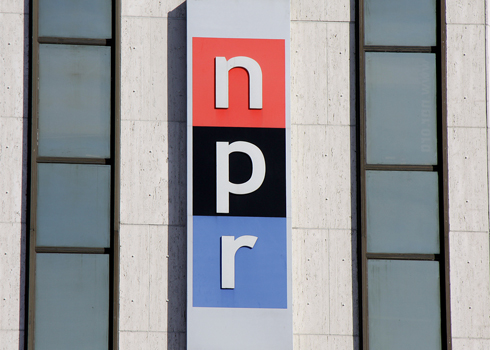After reviewing widely circulated claims that James O’Keefe misled viewers in his sting operation on NPR, a spokeswoman for the news organization condemned the “inappropriately edited” video yesterday. Nonetheless, NPR maintains that the executive caught on tape, Ron Schiller, still behaved inappropriately.
In an interview with NPR’s own media reporter David Folkenflik, NPR spokeswoman Dana Davis Rehm said that O’Keefe’s Project Veritas “inappropriately edited the videos with an intent to discredit” the news organization. But she said that Schiller still made “egregious statements.”
Folkenflik cited two experts who examined the tapes and concluded that O’Keefe had moved clips out of sequence and ignored mitigating statements from the complete footage in the shorter, edited version that was released first. Al Tompkins of the Poynter Institute pointed out to him that Schiller repeatedly — six times, by his count — tells the phony prospective donors in the video that NPR maintains a strict firewall between its donation and coverage and that “reporters will not be swayed.”
Ironically, the most widely-cited defense of NPR so far has come from The Blaze, a website started by Glenn Beck. Folkenflik interviewed Blaze editor Scott Baker, whose analysis of the complete footage of the O’Keefe sting identified several problematic areas, most notably the use of only vague references to the Muslim Brotherhood despite O’Keefe’s insistence that the fictitious Muslim Education Action Center was supposed to be an obvious front group for the Islamic group. Critics have also noted that some of Schiller’s quotes about the Tea Party were describing secondhand some of the views he’s heard expressed by Republicans.
To be fair to NPR, most of the early coverage of the tapes, as well as NPR’s own statements, did not center on the tenuous Muslim Brotherhood connection. The most damaging line from Schiller was arguably his suggestion that NPR would be better off in the long run without funding, which he made amidst an ongoing battle with Republicans in Congress over whether to defund the news organization. Nonetheless, any evidence of video trickery is likely to hurt NPR’s efforts at keeping up morale within the organization after CEO Vivian Schiller’s resignation. Public radio star Ira Glass is going after NPR executives for their defensive crouch, complaining this week that they were hurting themselves by not standing up to critics.






